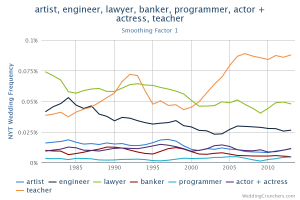
Eric just sent me the link to a fabulous site called Pica Pic | retro handheld games collection. The site lets you browse and play retro hand-held games like Nintendo Game & Watch toys and imitations. What is particularly impressive is that you play right on high-quality images of the toys.
Month: October 2013
Arts in 60 Seconds: Research Lectures
The University of Alberta has put together a set of short (60 second) lectures by faculty on what they do. See Arts in 60 seconds and ignore my one.
Supporting Digital Scholarship
The Tri-Council Agencies (Research councils of Canada) and selected other institutions (going under the rubric TC3+) have released an important Consultation Document titled Capitalizing on Big Data: Toward a Policy Framework for Advancing Digital Scholarship in Canada. You can see a summary blog entry from the CommerceLab, How big data is reshaping the future of digital scholarship in Canada. The document suggest that we have many of the components of a “well-functioning digital infrastructure ecosystem for research and innovation”, but that these are not coordinated and Canada is not keeping up. They propose three initiatives:
- Establishing a Culture of Stewardship
- Coordination of Stakeholder Engagement
- Developing Capacity and Future Funding Parameters
The first initiative is about research data management and something we have been working on the digital humanities for some time. It is great to see a call from our funding agencies.
Demographics in Japan
How are Japanese demographics, attitudes towards sexuality and marriage, and gaming connected?
I decided I should check my assumptions about an aging Japan and looked around for some data and articles. One interesting study I came across, from Goldman Sachs, is titled Womenomics 3.0: The Time is Now (PDF). The report has information about birth rates and dependency ratios. They expect there to be a 2:1 ration of workers to dependents (children under 15 and the elderly over 65) by 2050. The report calls for initiatives that encourage more women to join (or stay in) the workforce.
On the subject on attitudes towards marriage and sexuality and how those are changing in Japan, I came across an interesting article in the Guardian titled, Why have young people in Japan stopped having sex? Once you get past the human-interest sex frame there is a nice summary of some of the statistics and issues. The article suggests that the declining interest in getting married, having relationships and having children is not just a matter of women who don’t want to give up their careers, but a larger trend amongst men and women. They suggest it may be occurring in other countries too, especially those hit by the recession.
The Guardian article led me to a report by Eberstadt titled Japan Shrinks about the implications of the drop in fertility rates. The author makes an intriguing aside to the effect that, “Remarkably enough, there is a near perfect correlation between the demise of arranged marriage in Japan and the decline in postwar Japanese fertility.” More importantly he lists some of the possible side effects of the changing demographics. For example, young workers leaving Japan in order to escape the burden of supporting the elderly.
What does all this have to do with games? Well, the Guardian article and others make a connection between the attitudes to relationships and the availability of virtual relationships. Eberstadt spells out a possible connection when he writes:
- In a recent government survey, one-third of boys ages 16 to 19 described themselves as uninterested in or positively averse to sexual intimacy.
- Young Japanese men are, however, clearly very interested in video games and the Internet: In 2009, a 27-year-old Japanese man made history by “marrying” a female video game character’s avatar while thousands watched online.
- Japanese researchers are pioneering the development of attractive, lifelike androids. Earlier this year, a persuasively realistic humanoid called Geminoid F was displayed in a department store window, appearing to wait for a friend.
Japanese Game Culture Blogs
This term I’m teaching a course on Understanding Japanese Game Culture and I’ve just discovered (again) that my students know more than me. This is a graduate version of the seminar I taught this summer at Ritsumeikan University for University of Alberta undergraduates. For the graduate version I asked students to keep a blog with responses to the readings and as I checked their blogs this week I realized how interesting their interventions are. Many of their entries expand on issues from the readings in ways that remind me (once more) how much more learning takes place in a seminar where everyone contributes than in a instructor-driven course. Here are the links to their blogs. Enjoy:
- Mimi Okabe gyaru-taku.blogspot.ca/
- Jeremie Gagnon japongagnon.blogspot.ca
- Jared Bieby Japanese Game Culture
- Sonja Sapach http://sonjasapach.wordpress.com/
- Brett Nisbet http://bnisbet.blogspot.ca
- Justin Houle http://japanesegamingculture.blogspot.ca/
- Daniel McKechnie http://agovernmentman.tumblr.com/tagged/huco-617
- John Montague http://montaguejapanesegames.blogspot.ca/
- Aiden In http://aidenin.wordpress.com
- Domini Gee http://sleep-is-god.tumblr.com/tagged/huco617
- Alexander Smit-Keding http://ahuco617blog.blogspot.ca/
Happy Ada Lovelace Day! A Collection of Essays on Gender and Tech From Your Friends at The Atlantic – Rebecca J. Rosen – The Atlantic
The Atlantic has a great collection of essays on gender and technology gathered in one place, Happy Ada Lovelace Day! A Collection of Essays on Gender and Tech From Your Friends at The Atlantic. The page of stories includes a scan of the 1951 internal memo that allowed IBM female employees to get married (that you see above.) It also includes a story about Etsy’s prioritizing diversity in hiring which led to a significant improvement in the ratio of female to male engineers.
All of this in honour of Ada Lovelace Day!
The Wedding Data: What Marriage Notices Say About Social Change
Reading a collection of stories in the Atlantic about women and technology I came across a story about The Wedding Data: What Marriage Notices Say About Social Change. This article talks about Weding Crunchers – a database of New York Times wedding announcements since 1981 that you can search in an environment much like Google’s Ngram viewer. In the chart above you can see that I searched for different professions. Note how “teacher” takes off, probably because of the popularity of Teach for America.
I can’t help wondering if we are seeing the emergence of a genre of text visualization – the diachronic word viewer. This type of visualization depends on an associations between orthographic words (the actual words in texts) and concepts.
Pentametron: With algorithms subtle and discrete
Scott send me a link to the Pentametron: With algorithms subtle and discrete / I seek iambic writings to retweet. This site creates iambic pentameter poems from tweets by looking at the rythm of words. It then tries to find ryhming last words to create a AABB rhyming scheme. You can see an article about it on Gawker titled, Weird Internets: The Amazing Found-on-Twitter Sonnets of Pentametron.
Fuck Videogames and How to Destroy Everything
Brett sent me links to two great talks about video games. The first, Fuck Videogames are the slides for a talk by Darius Kazemi about how there is nothing special about videogames as a medium and designers should think about different ways of expressing themselves. How To Destroy Everything, Or, Why Video Games Do Not Exist (And How This Is Great For Everyone) is a transcript of a talk by Marigold Bartlett (and Stephen Swift). They talk about the ableist language in game culture like “lame”, “moron”, “dumb” and so on. They talk about “ludonarrative dissonance” (you have to read the essay) and this leads to other reflections. They end with:
We’re not attempting to guilt you. We’re saying if you’re going to celebrate what the amazing things in this medium can do, you have to equally take responsibility for this culture. You have to take responsibility for the things you don’t own. Give up ownership of video games. See them for the social construct that they are. For the sake of others whose voices aren’t being heard, who won’t be heard unless things change.
Video games don’t exist.
We invented them.
And we can destroy them.

